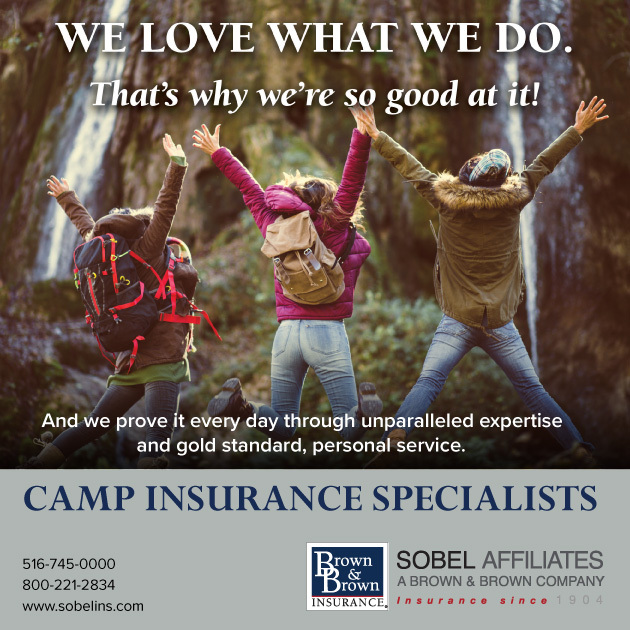As we begin our second year within the COVID-19 pandemic and head toward summer 2021, it is especially critical that camp professionals focus on resourcing a supportive camp culture that helps campers and seasonal staff practice identifying and managing their emotions and the emotions of others. We know from the early phases of the American Camp Association (ACA)’s 5-Year Impact Study that camp experiences are rich opportunities to practice social-emotional learning (SEL) and that the SEL outcomes resulting from camp help young people thrive in school and in their early careers (Browne, 2019). SEL is essentially a process in which children, teens, and young adults acquire emotional intelligence, develop empathy for others, and learn problem-solving skills. In the age of COVID-19, the value of camp experiences, and the emotional intelligence learned at camp, has never been greater than it is today.
Recent research on the emotional lives of young people in the COVID-19 pandemic underscores how highly anxious everyone is right now and how adults need to help young people learn to improve their emotional intelligence and productively manage their feelings. In a recent interview, Mark Brackett PhD, founding director of the Yale Center for Emotional Intelligence, reminded educators and parents that they need to be the best possible role models for children first (MacMillan, 2020). This summer, target your training to help camp CITs and staff who may be feeling considerable anxiety and stress get themselves together with positive self-talk and breathing and mindfulness techniques.
Brackett also urges us to role-model better listening, noting that there should be no “emotion judges,” only “emotion scientists.” He explains that emotion judges are closed and critical, but emotion scientists are open, curious, and reflective. Adults need to validate young people’s feelings and teach them that all emotions matter. There is no such thing as a bad emotion — that includes anxiety. If anxiety is seen as a bad thing, young people will adopt that mindset rather than practicing the acceptance of all emotions and learning to use them well.
Following Brackett’s recommendations, encourage staff to do emotional check-ins throughout each day at camp this summer. At breakfast, ask, “How are you feeling today? What’s going on?” Do the same at lunch or dinner where you might say, “Let’s talk about your day and how things went.” Camp staff should be prepared to model these behaviors and not just say their day was “fine” but share how they experienced many emotions during the day — joy, sadness, irritation, surprise, fear, etc.
This summer, public health guidelines will continue to require that masks be worn at camp. Masking makes reading the emotions of fellow campers and staff difficult. Acknowledge this challenge and highlight how essential these social-emotional check-ins are — especially this summer. We need to spend more time speaking with our campers and fellow staff, asking how they are feeling and listening to what they say so we can support them.
Having been isolated for so long over this past year, expect that your campers and seasonal staff will need more time to just talk during camp — socializing and sharing their feelings. Camp experiences may inspire helpful self-reflection and group discussion about the pandemic’s impacts and lessons. In doing so, camp promotes a host of powerful SEL competencies, such as relationship skills, self-esteem, empathy, emotional regulation, identity, and appreciation for differences, that will help them thrive next year in school. Plan to increase training and offer additional MESH resources to focus on creating an especially supportive camp culture for this summer of COVID-19 and beyond.
Thank you for your devoted leadership in ensuring that children, teens, and young adults have high-quality and healthy learning experiences at camp. Keep calm and camp on!
References
- Browne, L. (2019, November). Camp experience & social-emotional learning: Research brief. Martinsville, IN: ACA.
- MacMillan, C. (2020, November 6). Why ‘social and emotional learning’ is so important for kids right now. Yale Medicine. Retrieved from yalemedicine.org/news/social-emotional-child-developm




